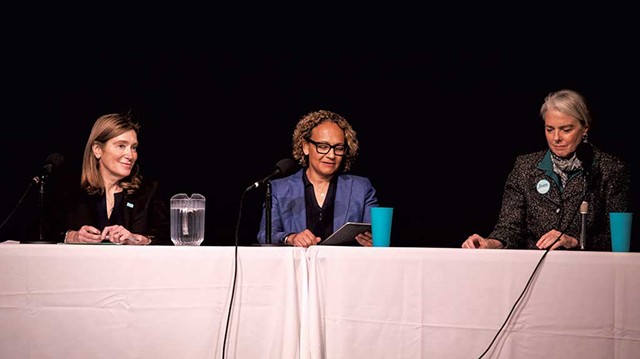
- Luke Awtry
- From left: Karen Paul, C D Mattison and Joan Shannon
The last time Burlington Democrats had a contested mayoral caucus, more than 1,300 people piled into Memorial Auditorium to vote — and left more than six hours later without a winning candidate. The four-way race in November 2011 ended in a tie between political newcomer Miro Weinberger and Tim Ashe, who was then a state senator. A month later, Weinberger won a runoff election by a healthy margin.
Twelve years later, Weinberger is leaving office, and a caucus on December 10 will decide the party's nominee for the March 5 Town Meeting Day ballot. Three women are in the running: City Council President Karen Paul (D-Ward 6), Councilor Joan Shannon (D-South District) and tech consultant C D Mattison. The winner will go up against the Progressive candidate, state Rep. Emma Mulvaney-Stanak (P/D-Burlington), who ran uncontested at that party's caucus on Monday. Independents have until January 29 to get on the ballot.
More than 2,000 people have already registered for the caucus. With Memorial Auditorium shuttered, Democrats don't have access to a large enough venue. That means voting will be done virtually, save for those who need special accommodations and request to vote in person. It's the latest twist in a unique Queen City tradition that dates back decades.
"There's a way for everyone to be involved," Andrew Champagne, the city Democrats' assistant treasurer, said. "We're looking for a great audience."
Political parties in Burlington have held nominating caucuses for more than 100 years. They've long been popular affairs. A February 1891 article in the bygone weekly Argus and Patriot in Montpelier reported that Burlington Democrats nominated ex-judge Seneca Haselton for mayor with 430 votes in "one of the most largely attended" caucuses in the city. The newspaper approved of the pick: "He is a good Democrat," the article says, urging people to turn out for him in the general. "Whoop 'er up for Haselton, boys." (They did: Haselton won.)
Champagne, a member of the state Democratic committee, is no historian. But he thinks caucuses are a tradition that Queen City voters want to keep. Unlike state primaries, which are conducted via Australian ballot, caucuses are "a way to have people get together," Champagne said. "It's a way to see your neighbor, a way to meet the candidate and a way to show your support."
Well, usually, anyway. This year, the event is being live streamed on Town Meeting TV and on the station's YouTube channel. The Dems wanted to hold the caucus at Edmunds Middle School, but the number of registrants quickly surpassed the gymnasium's 400-person capacity, Adam Roof, chair of the city party, said. Other large city venues, including the University of Vermont's Gutterson Fieldhouse, the Flynn theater and Main Street Landing, were booked. Roof considered asking to use a hangar at Burlington International Airport but nixed the idea since the airport is in South Burlington.
A handful of people can still vote in person at Edmunds: the candidates themselves, a few of their supporters, and voters without internet access or who otherwise need help navigating the system.
The party would prefer an in-person caucus, Roof said, but an online version offers some benefits. For one, people got used to a virtual option during the pandemic and have come to expect one, he said. Caucusgoers may be more likely to participate from the comfort of their couch, especially if voting involves multiple rounds.
"What we might lose in having 1,500 to 2,000 people rockin' and rollin' in a gymnasium somewhere, we pick up the advantage of having a more accessible caucus for people," Roof said.
Indeed, Progressives broke their attendance record in 2020 despite holding their mayoral caucus on Zoom. More than 1,400 logged on to vote. (This year's drew 140.)
The Dem caucus is open to registered voters who haven't cast a ballot in another party's caucus. To participate, voters have to register by filling out a form on the Burlington Democrats' website. The cutoff time is Saturday, December 9, at 5 p.m., but procrastinators will be given a one-hour window on Sunday, December 10 — from noon to 1 p.m. — to sign up in person at Edmunds. Only those in line as of 1 p.m. that day will be allowed to vote, no exceptions, Roof said.
The three mayoral candidates will make speeches, then give up the floor to the nine people running for city council. All eight "ward" seats are up for reelection, and Democrats will nominate candidates for every seat except Ward 2, typically a Progressive stronghold.
Two of the Dem races are contested: In Ward 6, Romeo von Hermann, a Green Mountain Transit supervisor and member of the Church Street Marketplace Commission, will go up against Becca Brown McKnight, who runs a brand and marketing consultant firm. And in Ward 7, parks commissioner Lee Morrigan will challenge Evan Litwin, a member of the city's Housing Board of Review.
A twist: A newly drawn voting map, which becomes effective in March, will determine which ward someone votes in. That way, caucusgoers will vote for the candidate who would represent them after the Town Meeting Day election, Roof said. Boundaries of many wards, including 1, 6 and 8, have shifted. Election officials are helping voters determine their ward ahead of time.
The party will email ballots to caucusgoers, even for in-person voters, who will use kiosks at Edmunds. They'll vote using a program called ElectionBuddy, a secure platform that Dems have used since the pandemic without issue, according to Roof. Voting will be open for two hours.
A candidate has to get 50 percent plus one vote to win, but with three people in the race, it's possible none will reach that threshold in the first round. In that case, the lowest vote-getter would be eliminated, and the two finalists would compete in a runoff to determine a winner — unless, of course, there's a tie. The Dems would then hold another runoff at a later date, though Roof said a repeat of 2011 is unlikely.
With just a few days remaining before the caucus, candidates are urging their supporters to register early. They also don't seem to mind that the event will be held online.
"I don't envy the party for having to figure it out," Shannon said with a laugh. "It will be fine."
Shannon said she anticipated a virtual caucus from the get-go and that it hasn't changed how she's getting out the vote. Over the weekend, she held two meet and greets in the New North End, which boasts the city's highest voter turnout. Her campaign emails ask supporters to send the caucus sign-up link to five friends.
Mattison is taking a similar tack, but she criticized the party for taking too long to send out reminders about registering for the caucus. She said she's concerned that people who aren't fluent in English — or with computers, for that matter — face additional barriers to participating.
"We've asked people to email their friends, to put it on Front Porch Forum, to share it in any way that makes sense to their communities — meet people where they are," she said.
Paul is making a final push by running television ads and holding events in each of the city's eight wards this week. Her campaign has also sent out a blitz of glossy mailers and is texting voters to remind them to caucus.
"We're just doing what we've been doing all along: following what we hope is a consistent and winning strategy," she said.
Correction, December 6: A previous version of this story misstated the percentage of votes a candidate needs to win the election.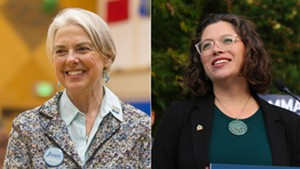
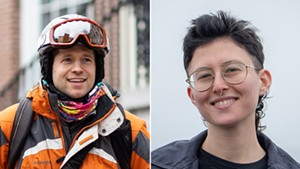
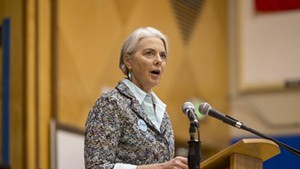
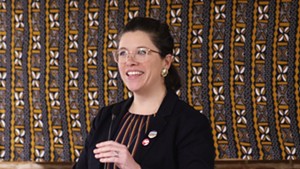
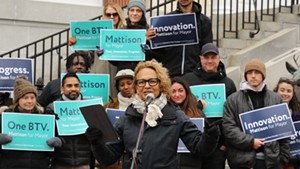









Comments
Comments are closed.
From 2014-2020, Seven Days allowed readers to comment on all stories posted on our website. While we've appreciated the suggestions and insights, right now Seven Days is prioritizing our core mission — producing high-quality, responsible local journalism — over moderating online debates between readers.
To criticize, correct or praise our reporting, please send us a letter to the editor or send us a tip. We’ll check it out and report the results.
Online comments may return when we have better tech tools for managing them. Thanks for reading.